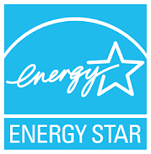
Financing and Incentives
Efficient windows are a great investment in your home’s comfort and a way to lower monthly utility bills. Buying them often gives you access to federal financing, state and local rebates, and tax incentives, making them less expensive than the sticker price. But finding incentives programs and qualifying for them can be confusing and time-consuming. Below you’ll find a list of resources to make it faster and easier. A good starting place, however, is a home energy audit. Having a professional assess your home’s energy efficiency also qualifies for rebates.
Utility and State Financing and Incentives

The Database of State Incentives for Renewables and Efficiency offers comprehensive and up-to-date links to incentive programs offered by state and local governments and utility companies. Click here for a list of all window programs that you can sort by state.

Energy Star Rebate Finder lists rebates and offers available in your zip code for ENERGY STAR certified products. Products that earn the ENERGY STAR label meet strict energy-efficiency specifications set by the U.S. Environmental Protection Agency, helping you save money and protect the environment. Click here for ENERGY STAR Rebate Finder.
Federal Financing and Incentives
The U.S. government often offers tax credits, loans, and other programs for replacing old windows with efficient ones. NFRC has consolidated this information, making it easier to see your different options. Click here for a list of incentives at the federal level that include all types of clean energy and a helpful FAQ. Clicking on these links will take you to other websites and resources that are not controlled by EWC or our parent organization, NFRC.
Below are the current federal incentives for residential windows. These change periodically, so it’s good to check before buying.
FHA PowerSaver Loan Program
HUD insures private lenders against loss on property improvement loans they make. The applicant must be able to repay the loan in regular monthly payments. Both large and small improvements can be financed. HUD does not lend money for property improvements.
Property Improvement loans may be used to finance alterations, repairs, and improvements for
- a home, including a manufactured home, which has been occupied for at least 90 days
- a non-residential purpose
- or to finance the construction of a new, exclusively nonresidential structure.
More information on this program can be found on the U.S. Department of Housing and Urban Development website.